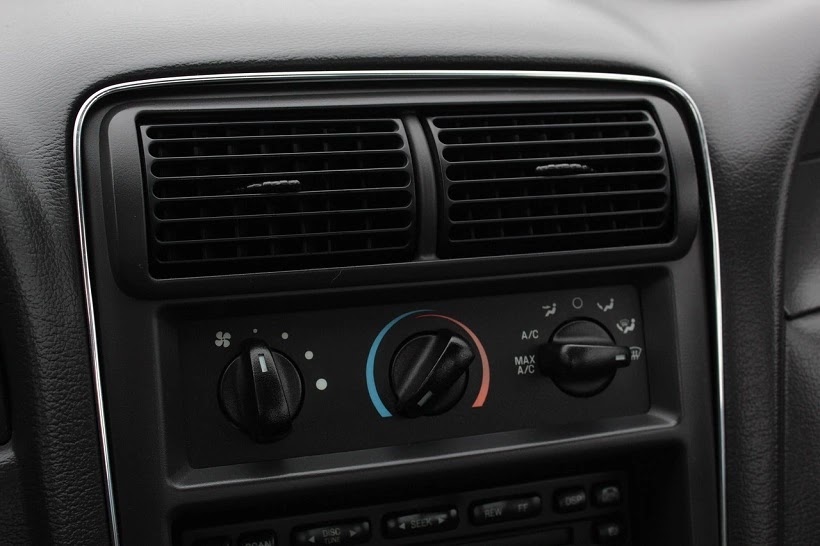Is your AC blowing little air? Discover the common causes and learn how to fix it with this helpful guide. Stay cool and comfortable!
If your AC system is blowing little air, there could be several reasons for this issue. Here are some common causes and troubleshooting steps to help you identify and potentially resolve the problem:
1. Clogged air filter: A dirty or clogged air filter can restrict airflow. Check the air filter and replace it if it looks dirty or hasn't been changed in a while.
2. Blocked vents or registers: Make sure all vents and registers are open and not obstructed by furniture or other objects.
3. Blower fan issues: The blower fan may not be running at full speed due to a faulty motor or capacitor. You may need to have a professional technician inspect and repair the blower fan.
4. Low refrigerant levels: If the AC system is low on refrigerant, it can result in reduced cooling capacity and airflow. Low refrigerant levels typically indicate a refrigerant leak, which requires professional attention to locate and fix the leak and then recharge the system.
5. Ductwork problems: Damaged or poorly installed ductwork can result in air leakage, reducing the amount of air that reaches the vents.
6. Thermostat settings: Ensure that your thermostat is set to "Cool" mode and the fan is set to "Auto" or "On" (not "Off"). Also, check that the temperature setting is lower than the room temperature.
7. Motor issues: Problems with the blower motor or other components of the air handler can lead to decreased airflow. Have a technician inspect the motor and its components.
8. Ice formation: If your AC system has ice buildup on the evaporator coil, it can restrict airflow. Turn off the AC and let the ice melt, then address the root cause, which could be low refrigerant or airflow issues.
Ice formation on the car's AC evaporator coil is a common issue and can be caused by several factors. When ice forms on the evaporator coil, it restricts airflow and reduces the cooling efficiency of the air conditioning system. Here are some possible reasons for ice formation on the AC evaporator coil in a car:
8-1 Low refrigerant levels: Low refrigerant (R-134a) levels can cause the evaporator coil to become too cold, leading to ice buildup. This often indicates a refrigerant leak, and you should have the system inspected by a qualified mechanic to identify and repair the leak before recharging the system with the correct amount of refrigerant.
8-2 Dirty evaporator coil: Accumulated dirt, dust, and debris on the evaporator coil can insulate it, preventing proper heat exchange and causing it to get too cold. Regular maintenance, including cleaning the evaporator coil, can help prevent this issue.
8-3 Blocked or restricted airflow: Any obstruction or restriction in the airflow through the evaporator can lead to ice formation. Check that the cabin air filter is clean and that the blower fan is functioning correctly.
8-4 Malfunctioning blower fan: If the blower fan is not working properly, it can reduce the airflow over the evaporator coil, leading to ice formation. Have the fan checked and repaired if necessary.
8-5 Thermostat issues: A malfunctioning thermostat can cause the AC system to run excessively, leading to ice formation. Ensure that the AC system is cycling on and off correctly.
8-6 High humidity: In extremely humid conditions, ice formation can occur more easily. While some condensation is normal on the evaporator coil, excessive humidity levels can contribute to ice buildup.
If you notice ice forming on the car's AC evaporator coil, the best course of action is to turn off the AC and let the ice melt before trying to address the root cause. Once the ice has melted, you can check the air filter, inspect for any visible obstructions, and ensure that the blower fan is working correctly. If the issue persists or you suspect a refrigerant leak, it's essential to take the car to a qualified automotive technician or an AC specialist for a thorough inspection and repair. Handling refrigerant and AC system components requires expertise and specialized equipment, so it's best to leave it to professionals.
9. Dirty evaporator or condenser coils: Accumulated dirt and debris on the coils can impede heat transfer and reduce cooling efficiency. Regularly clean the coils or have a professional do it for you.
If the above troubleshooting steps don't resolve the issue, it's best to contact a qualified HVAC technician to diagnose and fix the problem. Working with refrigerant and complex AC components requires specialized knowledge and tools, so it's better to leave it to the professionals.



Share with us what you think about this topic to provide another reader more information that this article should have covered.